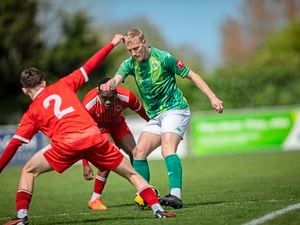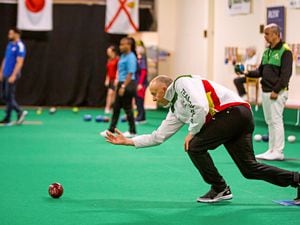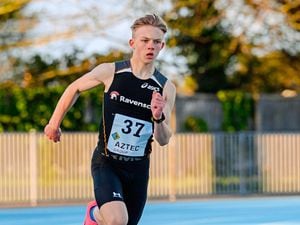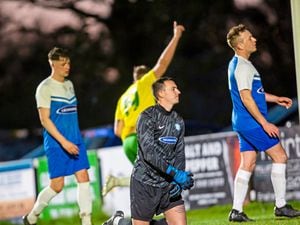Weather and housing situation led to emigration
IT WAS the allure of better weather and Guernsey's poor housing situation that led John and Maureen Kitchen to leave the island in the 1960s.
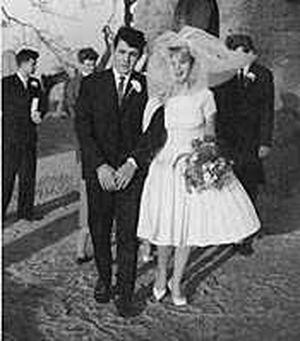
IT WAS the allure of better weather and Guernsey's poor housing situation that led John and Maureen Kitchen to leave the island in the 1960s.
The couple were living in a three-room flat in Havilland Street at the time.
In February, 1966 while socialising with friends, her husband mentioned that he'd seen an advert in the Guernsey Press saying that the Australia Employers' Federation was looking for men to work in the building trade.
Their friend Rocky promptly announced that he and his wife Dawn had already applied to move to Australia via the Commonwealth Immigration Scheme.
'Dawn excitedly went on to say, they'd received brochures showing bungalows surrounded by trees,' said Maureen. 'And the eight hours of sunshine per day was the icing on the cake.'
Another couple, Joan and Couttie, were happy because they'd just been given a States house - a relief to them, since they'd been living in a damp house, and while Joan had suffered from pleurisy their two sons were always getting chest colds (coincidentally, this couple eventually moved to Perth).
The Kitchens were in their early twenties at the time, and had two children, Gina (two and a half) and Maria (12 months).
They were pleased that their friends had got a States property, but Maureen said it made them realise that it could be several years before they themselves would be entitled to one. 'As we could count on one hand the people we knew who were living in their own home, we'd never considered it,' she said.
Looking into the cost of emigrating, they discovered that they would have to pay only £10 each towards their assisted passage, with the children going free.
So they decided to apply to move to Australia, first of all facing an interview at the Old Government House Hotel.
The entire family was asked to go along, and Maureen said she was a bit daunted: 'The interview was carried out in a palatial room. I felt in awe of the place, and was on edge because I thought Gina or Maria might damage one of the glass top tables.'
The interviewer asked John and Maureen about their family backgrounds, and John explained that his brothers and sisters were still living with his parents in England. Maureen told the interviewer about her upbringing in the Guernsey Children's Home.
Next they were asked whether they would prefer to travel by sea or air. They chose air because they reasoned that if they went on a ship they would need spending money.
They were told they would need smallpox and cholera injections, and would be notified of their departure date within the next six to eight weeks.
'As he was shaking John's hand, he looked at John and me and said, "You'll enjoy living in Australia", said Maureen.
So it was that, in September 1966, the Kitchen family boarded a Brittania Propjet with 116 other passengers, all emigrating to Perth.
The Kitchens were among those going to Point Walter Hostel, but many others were being met by relatives or friends. 'When I heard those stories, I wished someone was meeting us,' said Maureen.
The flight took 36 hours which, coupled with a 15 hour delay at the start, meant that the migrants were exhausted when they finally arrived at Perth Airport and boarded the buses waiting to take them to the hostel.
Everyone was sorted alphabetically by a man who Maureen said yelled like a sergeant-major.
But once on the bus all was quiet. It was a clear, moonlit night, and as they drove along the Great Eastern Highway and the Canning Highway, Maureen and John gazed appreciatively at the many bungalows with the large expanses of lawn that ran right down to the roadside.
When the bus appeared to follow a sign that read 'to the rubbish tip' one man quipped that perhaps they were going to be dropped off there.
Muffled laughter from a couple of the passengers broke the rather sombre mood briefly, but then it was back to silence and, said Maureen, a growing feeling of apprehension.
Memories of her old life in the children's home were evoked when, on arrival at Point Walter Hostel, the immigrants were taken to the canteen, which was filled with square tables.
Hot drinks and cake were given out while they were waiting, but it wasn't long before a woman shouted their name and Maureen and John, carrying their girls and struggling with their hand luggage, followed her out of the canteen.
They were guided down a long line of different sized weatherboard buildings, until the woman stopped and announced 'this one's yours'.
There were three single iron beds inside the small room, with a cot for Maria. 'As we'd always slept in the same room, apart from putting two beds together for John and I, everything felt familiar,' said Maureen.
Next morning they found a business card pushed under the door, from a man looking for bricklayers.
They also found that they'd missed breakfast, and wouldn't get anything to eat or drink until lunchtime.
The meals timetable was the cause of a lot of complaints among the migrants, but since Maureen had been raised in an orphanage she said set mealtimes didn't bother her.
Their next discovery was that their first day in the country - 28 September, 1966 - was a public holiday.
With everything closed they weren't able to go into Perth to check that their savings had been transferred until the next day, so they decided to explore the area a little.
Maureen said that as they strolled down the hill the first thing they spotted was an ice cream van. They bought the girls an ice cream, continuing their walk until they found themselves on the shore of the Swan River.
They spent a while gazing over the blue water, and then John turned to Maureen and said 'Well this'll do me.'
'I nodded', said Maureen.'We both knew coming to Australia was the right decision.'
She said that soon after his comment she felt that a 'strange inner voice' was telling her that this was where she was meant to be.
Now, henever someone asks her and John about the decisions they've made in life, they both put moving to Australia at the top of the list.
And they're not alone, since some of their friends and family have also made the move.
While some have loved it and are still living in the country, she said that others have returned to Guernsey - only to wish they'd remained in Australia.
The couple have never been back to the island, but their son Karl (born in 1967) visited in 2005 with his wife and children and were full of praise about their stay.
Maureen was born during the Occupation, the illegitimate daughter of a local woman and a German soldier.
When she was four, her mother was taken into the local mental institution. Maureen, deeply traumatised, was taken into care.
She is hoping to find a publisher for a book she is writing based on her experiences of a life spent in and out of the island's Children's Home, and growing up in post-war Guernsey. The book is to be called 'Nobody's Child'.


